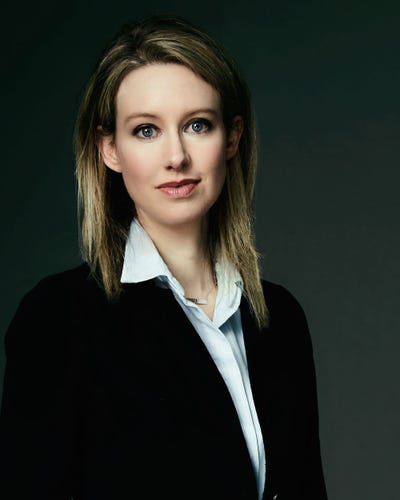Why Theranos Should Have Had A Backup Plan, But Didn't
January 9, 2017
As Theranos cuts another 155 jobs, CEO Elizabeth Holmes may be eating her words from a 2015 Stanford Business School interview.
Amanda Pedersen

Elizabeth Holmes, CEO of Theranos
Theranos CEO Elizabeth Holmes once boasted that she was "not big on backup plans." That's unfortunate, given that her once-thriving blood-testing startup just slashed its workforce for the second time in three months.
Theranos said it eliminated 155 positions, which is in addition to the 340 workers who lost their jobs in October when the company shut down its clinical labs and wellness centers. That leaves Theranos with a team of 220, quite a drop from the 790 full-time employees on its payroll last August.
"These are always the most difficult decisions," according to a company statement that labeled the layoffs as a "re-engineering" of its operations. But the workforce reduction that will allow Theranos to "marshal its resources most efficiently and effectively," the company said, as it continues to focus on its miniLab testing technology.
In less than two years Theranos has gone from a $9 billion Silicon Valley success story to one buried beneath class-action lawsuits, federal investigations, and severe CMS sanctions.
The Wall Street Journal report that first brought to light questions about the effectiveness of the company's technology was published in October 2015, a mere seven months after Holmes told an audience of Stanford Business School students that she wasn't really into backup plans.
"I think the minute that you have a backup plan, you've admitted that you're not going to succeed," Holmes said.
Last July, Theranos appeared to be trying to address its weaknesses by adding executives with "substantial" regulatory, compliance, and operational expertise. The company's board also created a compliance and quality committee, headed by newly appointed board member Fabrizio Bonanni.
Those actions are consistent with other comments Holmes made during her 2015 Stanford visit, as she talked about the importance of embracing failure. "Our approach is to take the most swings at the bat," she said. "We'll get the most home runs, we'll also get the most strikeouts, and we're just not going to make the same mistake twice."
Amanda Pedersen is Qmed's news editor. Reach her at [email protected]
[Image credit: Theranos.]
About the Author(s)
You May Also Like


